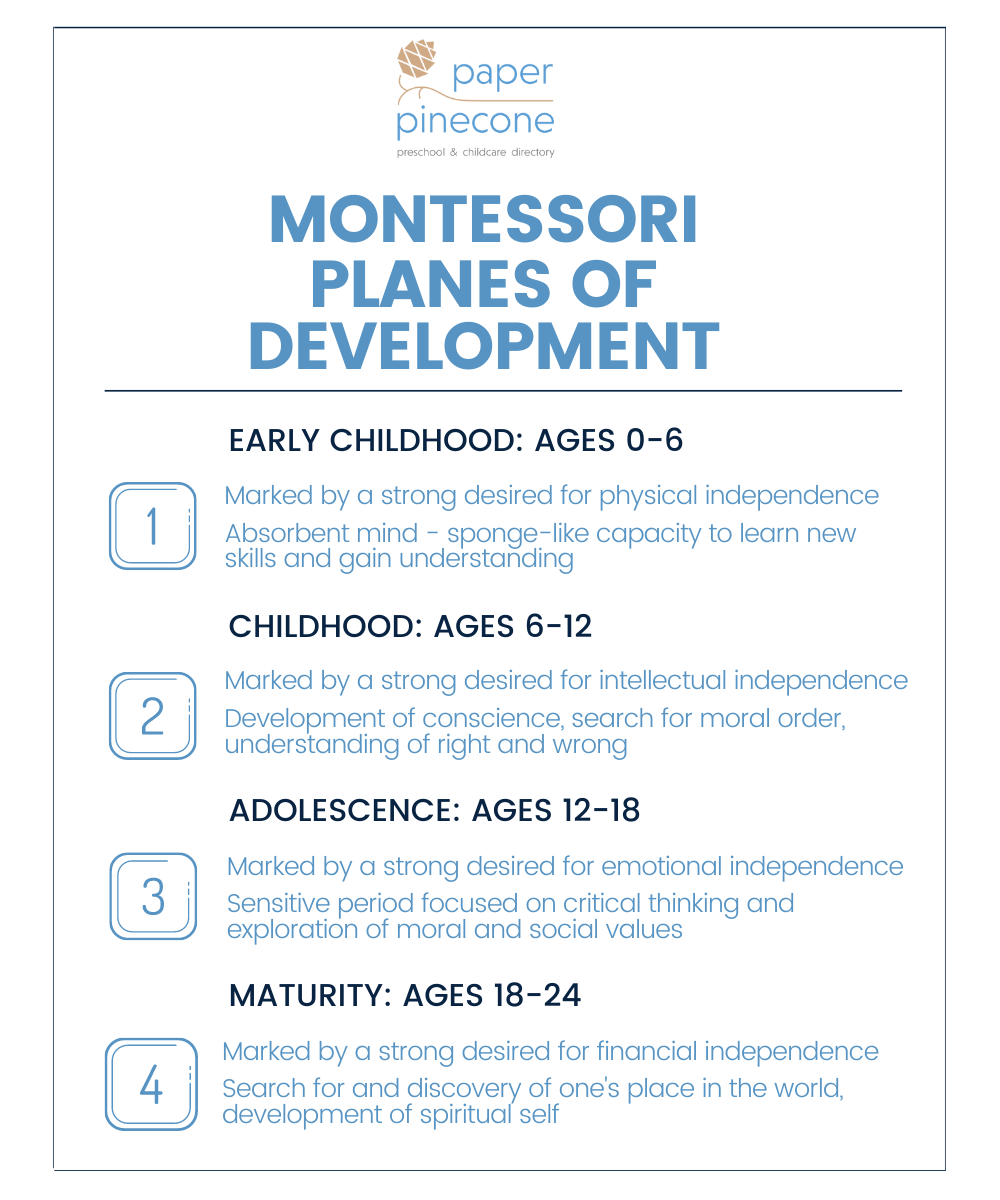Montessori vs. Traditional Preschool: Which is Better?
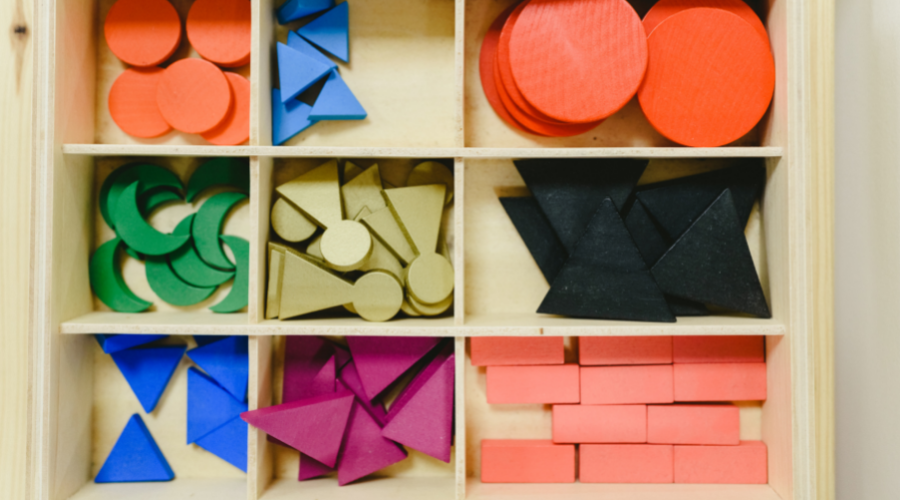
Published Date: 08/31/21
Finding the right preschool fit
Deciding on a preschool program might feel overwhelming. What philosophy is right? Where will my child learn best? What schools have openings? Parents can feel like they're drowning in a sea of options for their children.
Understanding how children learn, the pros and cons of each environment, the differences in philosophy, and the curriculum will help you feel confident that the preschool program you send your child to will be one where they develop and grow.
Today, we'll look at Montessori vs traditional preschool.
-----------------------------------------
RELATED: SEARCH NOW TO FIND THE BEST MONTESSORI PRESCHOOL NEAR YOU
-----------------------------------------What is Montessori education?
The Montessori method of education was developed by Dr. Maria Montessori in Italy in the early 1900s. At her school Casa dei Bambini, she eschewed traditional education and created an environment where children learn at their own pace through play.
Teachers in Montessori classrooms are called guides and rather than a standing in front of the classroom and teaching lessons like in a traditional school, Montessori students use self directed play to learn within the framework of the Montessori curriculum.
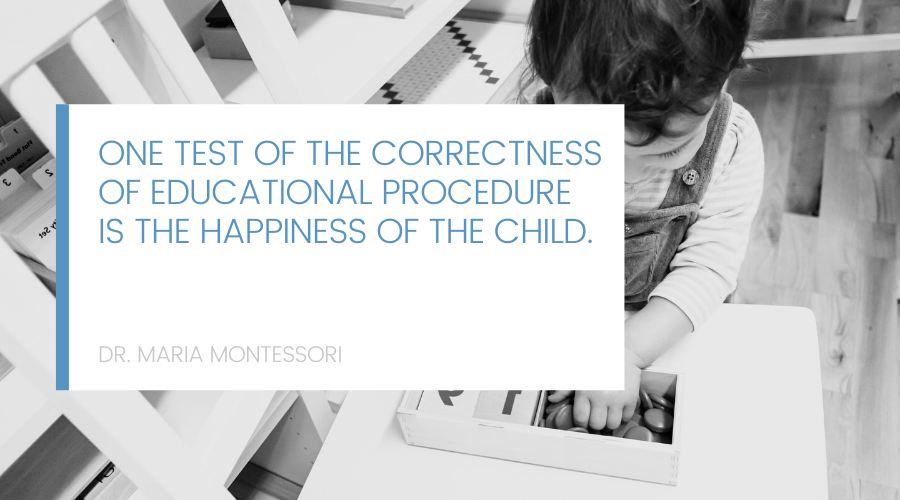
-----------------------------------------
RELATED: DISCOVER THE PROS AND CONS OF MONTESSORI PRESCHOOL
-----------------------------------------
What is the Montessori curriculum?
The Montessori curriculum is organized into five areas of learning:
Practical life
Practical life is the development of skills that a child will use outside the Montessori classroom in daily life. Students build fine motor skills, concentration, and independence by learning activities like food preparation, cleaning, transferring materials and there is a strong emphasis on grace and courtesy.
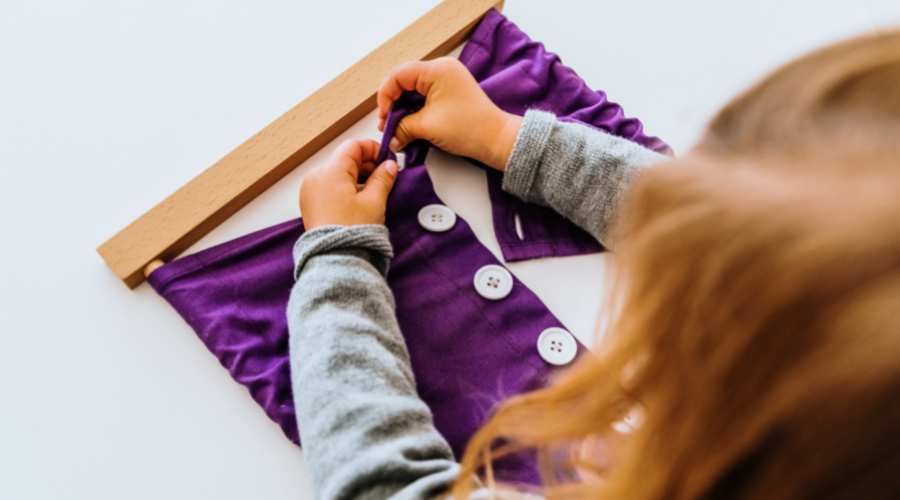
Children focus on practical life in Montessori classrooms
Sensorial
Sensorial learning is focused on refining a child's sense of sight, touch, sound, smell, and taste. Montessori sensorial methods are designed to help children organize their sensory information and aid in their understanding of the world. Kids may use blocks to learn colors, shapes, and dimensions, preparing them for math and classification.
Mathematics
Montessori math is designed to provide students with an understanding of abstract mathematical concepts through play and hands-on learning. While all children learn at their own pace, a child who is ready may move beyond typical preschool math of counting and matching numerals.
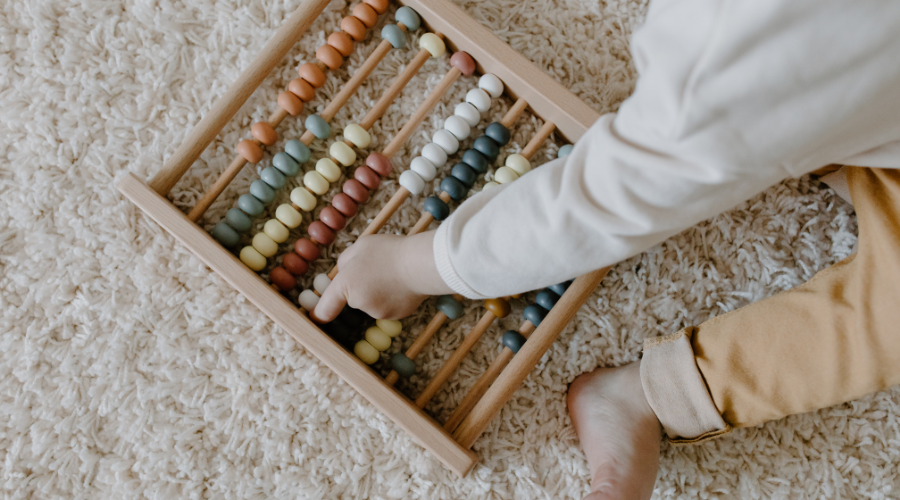
An abacus is an educational tool that might be used for both sensorial and math lessons.
Montessori methods rely on a child developing their own interests and a teacher guiding an activity a child has initiated.
Language
Montessori programs include language instruction where children build both their vocabulary and understanding of language. Montessori environments are designed to foster success in reading and writing, in addition to spoken language. Children in Montessori schools will learn to hold a pencil correctly, phonics, letter identification, and more.
Culture
Culture is a part of the Montessori classroom. Montessori education incorporates science, history, music, art, geography, and more. Emphasis is placed on developing a child's understanding of their community, social responsibilities, and the world. Respect is a core principle in Montessori classrooms, and as such, children will learn to respond to diversity with respect.
-----------------------------------------
RELATED: 6 TIPS TO SURVIVE THE TRANSITION TO PRESCHOOL
-----------------------------------------What do Montessori schools look like?
The Montessori environment is designed to provide the materials they need to learn and develop independence.
Montessori preschools include furniture and learning materials designed for preschool age children with little hands. Shelves are low and students can access them without help from the teacher.
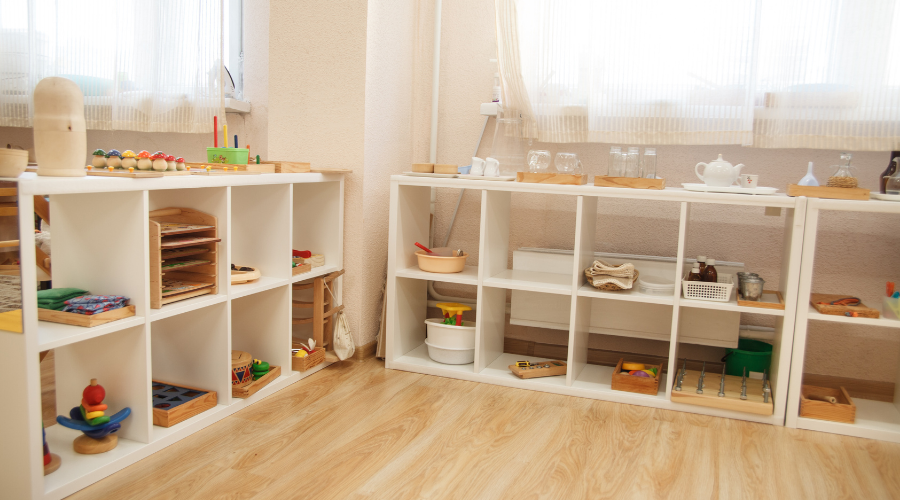
Montessori schools use open shelving so children have easy access to learning materials. The classrooms do not have plastic toys and favor open-ended materials.
You won't find plastic toys in the Montessori classroom. Instead, Montessori favors natural materials, like wood. Additionally, materials are open-ended, meaning there is more than one way to use them and learning can continue rather than cease when a child has mastered the task.
What is the role of the teacher in a Montessori school?
Rather than stand at the front of the class teaching a lesson to the entire group, a Montessori teacher spends time observing each student as they engage in active play. As the teacher gets a sense of a child's interests, a lesson is presented to the individual in a way the child is most apt to learn.
The teacher controls the Montessori environment, making sure it's well prepared and children are set up to be engaged. However, the children themselves are not controlled by the teacher.
Behavior problems may be less likely in Montessori classrooms because students are determining how they want to learn and are active and engaged in their self directed play.
However, when they do arise, positive discipline is used rather than a system of rewards and punishments.
-----------------------------------------
RELATED: POSITIVE DISCIPLINE WORKS BETTER THAN PUNISHMENTS
-----------------------------------------
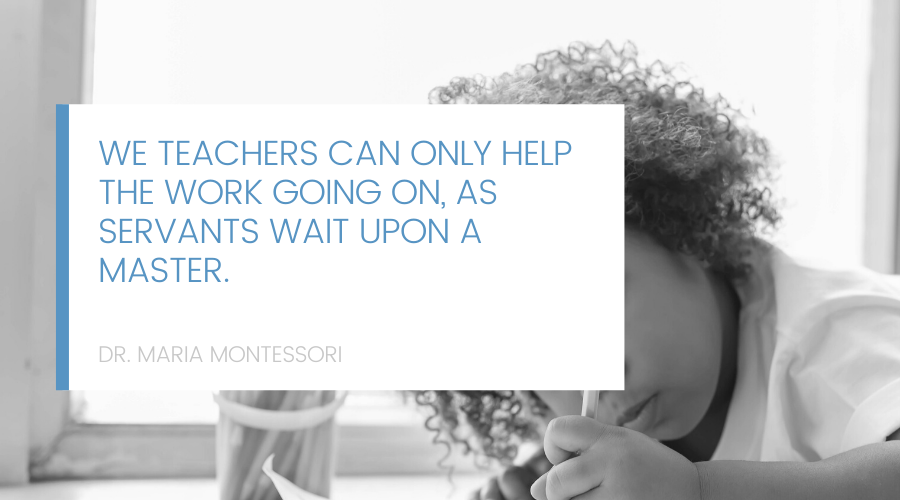
Montessori education relies on mixed age classrooms
Teachers are just one way children learn in a Montessori program. Learning also takes place by being in a mixed age classroom. Older children become leaders, develop a strong sense of self, and reinforce the concepts they're learning when they become teachers to younger students.
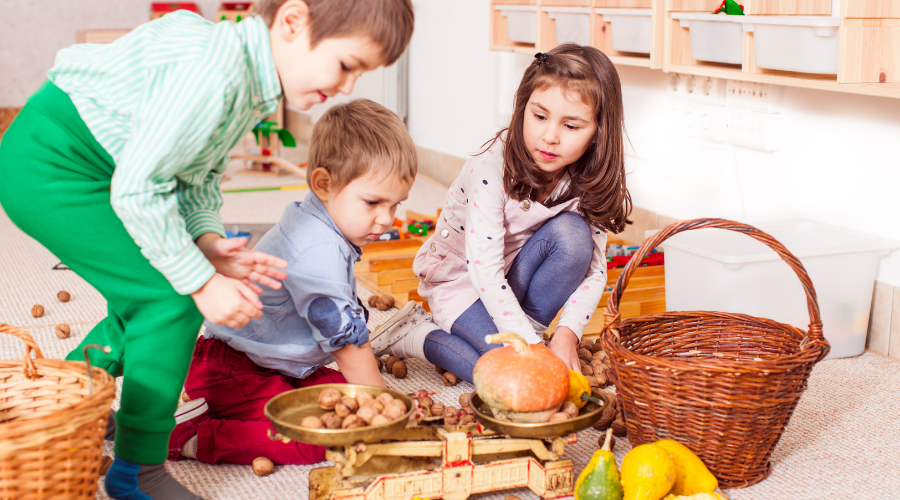
The Montessori method uses mixed-age groups in classrooms, where students learn from one another.
Older children develop confidence and self esteem as they teach younger children. This is one difference between Montessori and traditional education.
The Montessori educational cycle last three years
Montessori programs are organized based on developmental cycles that correspond to the age of the child. There are four distinct growth periods called plane of development.
- Ages 0-6
- Ages 6-12
- Ages 12-18
- Ages 18-24
Dr. Montessori observed that a path of successive stages exists within a child's development. Each of these stages has its own needs pertaining to cognitive, social, emotional, physical, and moral development. During each plane, preparation is done for the next.
Within these planes, Montessori education is divided into sub-planes and that is the basis for classroom structure.
You may find that a Montessori school requires parents to make a three-year commitment to the program before accepting a student.
The Montessori Planes of Development serve as the framework for mixed age classrooms
What are the differences between Montessori and traditional preschools?
There are many differences between Montessori preschool and traditional preschool.
Guiding philosophy
Traditional preschool may not have a philosophy that they follow to teach early childhood education. Each environment will be different, and it will be up to the school to determine their approach to learning.
Montessori schools, of course, adhere to the Montessori philosophy, which is one of respect for the child, peace, intrinsic motivation, movement, prepared environments, and meaningful, contextual learning.
Teaching methods
A Montessori school is focused on learning through play. Traditional schools may incorporate it into the day, but also may expect students to use worksheets and similar activities.
In addition, traditional schools favor teacher-directed lessons where teachers lead the entire class on a particular subject.
In a Montessori school, lessons are developed based on the interest and readiness of each student. Education is often integrated, for example math lessons may also incorporate practical life and sensory activities as well as social emotional learning.
Age groupings
In a Montessori preschool class, also called a Children's House, you'll find children ages 3-6 in the same classroom. This is a crucial component of the Montessori method to support children learning at their own pace. Traditional classrooms don't use mixed age groups, instead segmenting children by age.
-----------------------------------------
RELATED: 5 BENEFITS OF MIXED AGE PRESCHOOL CLASSES
-----------------------------------------Developmental milestones
You'll find that in many traditional preschools, children must meet certain milestones before they're able to move on to the next class. Frequently, this includes a child being potty trained. In the Montessori classroom, each child is expected to meet developmental milestones at their own pace. Parents will find that programs who accept children in diapers do not require toileting by a specific time.
The classroom environment
As noted, a Montessori school will not contain plastic toys, will focus on open-ended elements, and make all things easily accessible for students in the class. Furniture will be appropriate for the child's size and students will be able to reach everything they need on their own.
In a traditional classrooms, you may find toys made of plastic and closed-ended elements. You also may find that a child does not have access to all learning tools at all times.
Learning schedule
Traditional classrooms might designate parts of the day for specific types of education. Students might have a schedule to do art, science, literacy, outside time, and more.
A student learning Montessori will have the freedom to dictate their day more than others. Teachers will still provide a framework, for example, lunch, snacks, and nap time will be consistent daily, but the remainder of the day may be determined by what the child's heart desires.
Teacher qualifications
Every state has its own regulations regarding the qualifications needed for preschool teachers. While all teachers at a traditional preschool may meet the minimum educational standards, Montessori teachers may have additional credentials from the American Montessori Society or Association Montessori Internationale.
Commitment and cost
While some public Montessori schools exist, most are private, and the cost can be significantly higher than traditional preschool. Additionally, a school may decide not to accept a child if they have not been in a Montessori environment in the past.
Traditional preschool does not require students to make a long-term commitment to the program and their previous early childhood education experience typically is not a factor for enrollment.
-----------------------------------------
RELATED: SHOULD YOU CONSIDER CHARTER SCHOOLS FOR KINDERGARTEN?
-----------------------------------------Is a Montessori preschool better than a traditional preschool?
Choosing the preschool that's right for your child
There are many factors to consider when it comes to your child's early education. While Montessori preschool can be wonderful for many families, traditional schools can be as well.
If you are looking at traditional education, seek out a play-based preschool with a strong focus on social emotional development over academics. Students should still learn at their own pace and lessons should be taught with individual interests, strengths, and areas for growth in mind. Lessons should also be developmentally appropriate and students should remain active throughout the day.
If the Montessori approach to preschool appeals to you, keep in mind that most likely, your child will move to a traditional school eventually so ensure your preschool adequately prepares students for traditional classrooms.
When searching for a preschool, contact and tour several programs to understand the differences in their approaches and environments and find a place where your child will thrive. And to start your search, visit Paper Pinecone, the #1 most trusted preschool and childcare directory available.
Paper Pinecone is the #1 most trusted childcare directory giving parents access to the best preschools and best daycares near you. Parents always search free and childcare providers always list free. Send inquiries about the best daycares and preschools to [email protected].
- stacey's blog
- Log in or register to post comments
